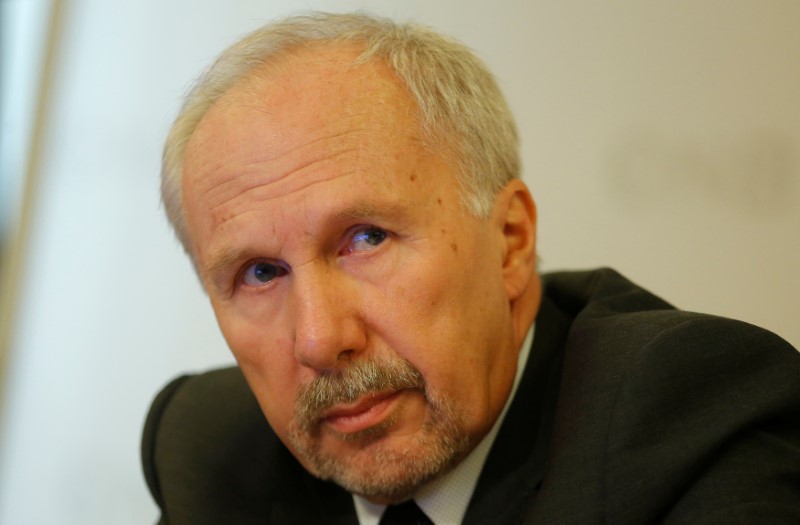By Shadia Nasralla
VIENNA (Reuters) - The European Central Bank will probably first review its monetary policy stance in June but stop short of any decision on winding down its huge stimulus programme, ECB rate setter Ewald Nowotny said on Monday.
There are growing calls in Germany to bring the ECB's 2.3 trillion euro ($2.5 trillion) bond-buying programme to an end as inflation there rebounds, far outpacing price growth in weaker economies such as Italy, where anti-euro sentiment is swelling.
Nowotny said that rate setters are likely to wait for the ECB's June economic forecasts before reassessing their policy stance and even then no decision is likely to be made about "tapering", or gradually ending, the programme aimed at boosting inflation in the euro zone.
"The discussion about our overall economic assessment will probably (take place) in June," Nowotny, the Austrian central bank governor, said. "But this is not a tapering discussion."
Nowotny added that any increase to the ECB's interest rates, currently in negative territory, would only come after the start of "tapering", citing the policy adopted by the U.S. Federal Reserve.
"One would start with tapering first, so a reduction of the liquidity measures, and only at a later stage it would be sensible to take action on the interest rate policy," he said.
ITALY AND FRANCE
Nowotny ruled out the prospect of Italy or France, where eurosceptic parties are polling strongly, leaving the euro zone.
"That's an absurd discussion," he said. "It would be economic suicide for Italy to leave the euro zone. The same is true for France."
French far-right party leader Marine Le Pen, who is leading the race for the first round of May's presidential elections, and Italian comedian Beppe Grillo, whose Five-Star Movement is neck and neck with the pro-euro Democratic Party in the polls, have both called for their countries to go back to national currencies.
ECB President Mario Draghi said earlier this month any country leaving the currency bloc would need to settle its debt with the ECB first. This amounts to some 358 billion euros in Italy's case.
Nowotny dismissed the debate outright, however, and suggested Draghi too should not have bothered commenting on it.
"I would almost say, honestly, even the statement of President Draghi on this topic seems to me to take the discussion almost too seriously," Nowotny said.

(Writing By Francesco Canepa and Andreas Framke in Frankfurt; Editing by Hugh Lawson)